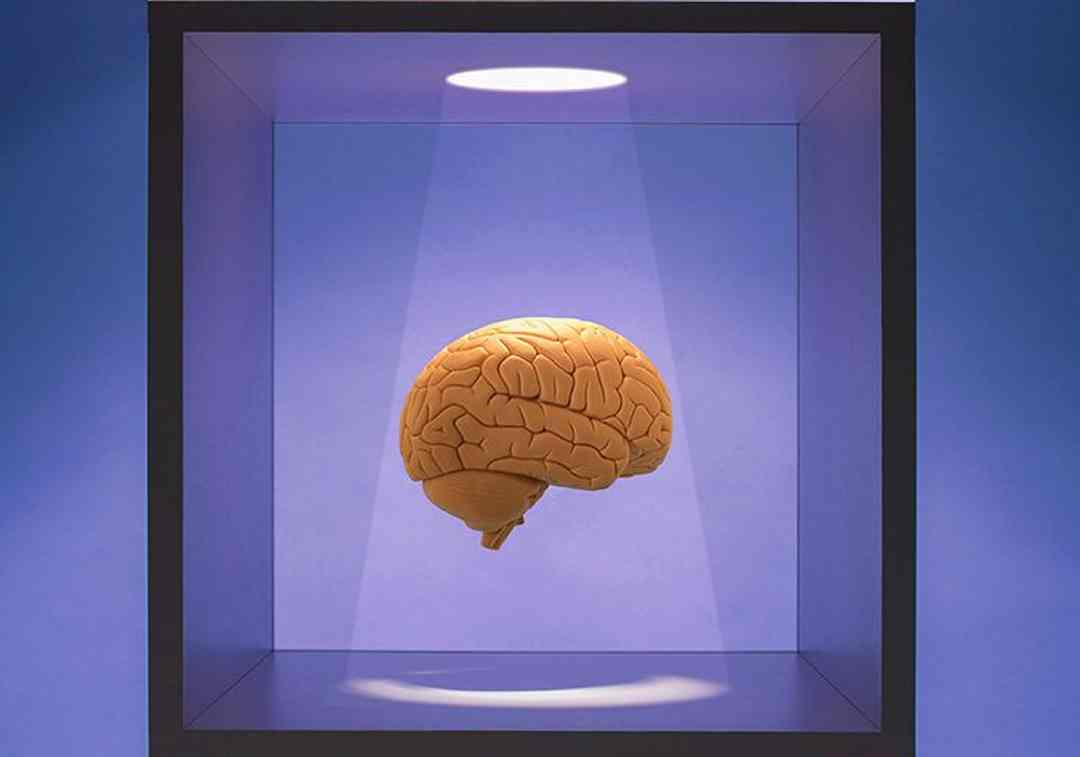Dissociation is without doubt one of the methods your mind protects you. It doesn’t need you to relive a traumatic expertise, so it takes steps to hide what occurred.
Most individuals in life expertise loss and heartbreak. Nonetheless, not everybody understands what it means to expertise trauma.
If you’ve lived by way of a traumatic expertise, all the things you as soon as knew could be turned the wrong way up. Trauma can shake you to the core and disconnect you from actuality.
Trauma could make you doubt your price and query your identification. It may well additionally destroy your non secular beliefs and religion in humanity.
This emotional and bodily state of shock alerts the mind to leap into motion. But when trauma-related dissociation is supposed that can assist you, when does it develop into one thing that wants remedy?
What’s dissociation?
Dissociation is an escape. It’s an involuntary detachment from actuality, usually skilled as a disconnect out of your sense of self, ideas, and reminiscence.
Dissociation normally happens as a consequence of trauma, comparable to:
- abuse
- sexual assault
- a pure catastrophe
- an accident
- army fight
“Dissociation, believed to be the oldest psychological protection mechanism we are able to develop, is the power to disconnect from our ideas, emotions, physique, actions, and environment,” explains Alyson Privitera, LCPC, NCC, CCTP, a counselor primarily based in Baltimore, Maryland.
“When human beings are psychologically overwhelmed, a element of trauma, we search security. Typically that security can’t be met at the moment by our exterior world, so we shift to searching for security internally.”
The surface world wasn’t inside our management, she explains, however our interior world is extra so.
The hyperlink between trauma and dissociation
Trauma is, by definition, an awesome emotional response to a horrific occasion. Dissociation is usually a essential a part of your survival intuition throughout trauma. When a horrific occasion occurs, your nervous system kicks in to guard you from psychological and bodily ache.
“Dissociation is a part of the fight-or-flight response, which is an involuntary survival community that helps defend us from threats or hazard,” says Sabina Mauro, PsyD, who focuses on treating sufferers residing with trauma in Yardley, Pennsylvania.
“Throughout traumatic experiences, the fight-or-flight is activated with the intention to defend the person,” she explains. “If fight-or-flight shouldn’t be a viable choice or if fight-or-flight turns into inactive as a result of physique feeling overwhelmed, the freeze response is activated.”
Based on Mauro, it’s in the course of the “freeze response” that you may expertise disconnect. As a result of there aren’t another choices obtainable, you primarily sever contact between your mind and physique with the intention to survive the expertise. This can be a related survival response to a mouse “taking part in lifeless” when caught by a cat to extend its probabilities of getting out of there alive.
Whereas dissociation is a useful technique on the time, it will possibly additionally come up lengthy after the trauma is over, inflicting issues in your every day life. Dissociation would possibly happen once you encounter a state of affairs or object that reminds your nervous system — consciously or subconsciously — of the trauma.
Trauma can really change the construction and performance of the mind, so it’s no surprise that we really feel sturdy psychological and bodily sensations associated to it.
How can I inform if I’m experiencing dissociation?
If you dissociate, chances are you’ll really feel disconnected from your self and from the world round you. You would possibly really feel like you’re separate out of your physique, otherwise you would possibly really feel just like the world round you isn’t actual.
Indicators and signs that you’re dissociating embrace:
- feeling disconnected out of your physique, like an “out-of-body expertise”
- feeling separate from the world round you
- feeling numb or experiencing emotional detachment
- missing a way of identification, or a way of who you’re
- forgetting sure occasions or private info
- feeling little bodily ache
- having clear, completely different identities, as in dissociative identification dysfunction
Importantly, everybody’s expertise of dissociation is completely different. The secret’s to seek out out what it appears like for you so that you could discover it when it arises.
It’s usually useful to do that with a psychological well being skilled. Elements of your mind “shut down” throughout dissociation, so it may be tough to note when it’s occurring. A therapist may help you acknowledge the indicators that you simply’re dissociating or that an episode is approaching, so that you could take steps to maintain your self secure.
Two types of dissociation are:
- Depersonalization. This feels as in case you’re watching your self as an actor in a film. It’s possible you’ll really feel as if you’re having an out-of-body expertise, floating round your precise physique.
- Derealization. This feels just like the individuals and issues round you’re unreal — nearly as in case you’re in a dream. Sounds could also be distorted, or the world could look “unnatural” not directly.
Based on the Nationwide Alliance on Psychological Sickness (NAMI), roughly 75% of individuals expertise an episode of depersonalization or derealization at the very least as soon as of their lives, and solely 2% expertise persistent episodes linked to dissociative issues.
When does dissociation develop into a dysfunction?
Whereas many individuals could expertise dissociation, usually associated to previous trauma, the signs don’t all the time meet the standards for a psychological well being dysfunction.
Episodes of dissociation differ in size; they could final a couple of hours or days, or they might final for much longer, into weeks or months. If you happen to discovered to dissociate from a younger age, dissociation could also be a standard expertise as an grownup, and it is perhaps the primary means that you simply address stress. This may increasingly sign a dissociative dysfunction.
As dissociation is the physique’s response to excessive stress, analysis from 2014 suggests it may be current, in some kind, in nearly all psychiatric issues. This consists of anxiousness issues, panic dysfunction, and despair.
Under, we have a look at some psychological well being circumstances that generally contain dissociation.
Dissociative issues
If you happen to’re experiencing persistent episodes of dissociation, chances are you’ll meet the standards of analysis for one of many three varieties of dissociative issues:
- Depersonalization/derealization dysfunction (DPDR). With DPDR you ceaselessly really feel as if you’re watching your actions and ideas from an out of doors perspective.
- Dissociative identification dysfunction (DID). You probably have DID, chances are you’ll really feel as if you’ve got completely different selves or that you simply don’t all the time have management over your completely different components. It’s possible you’ll surprise which persona inside you is the “actual” you.
- Dissociative amnesia. Dissociate amnesia usually entails reminiscence loss round a traumatic occasion. It’s possible you’ll fully neglect the trauma, or chances are you’ll block out issues that remind you of the trauma throughout an everyday day. You would possibly neglect issues like chores, work deadlines, or to choose your canine up from the vet.
If trauma-related dissociation is holding you again in your every day life, assist is offered. Remedy choices exist for all types of dissociative issues.
Borderline persona dysfunction
Dissociation is commonly a element of borderline persona dysfunction (BPD). Many individuals with BPD have a historical past of adolescence trauma.
Submit-traumatic stress dysfunction
Submit-traumatic stress dysfunction (PTSD), and its newer counterpart advanced PTSD, each generally contain dissociation.
Since PTSD is a fear-based analysis, dissociation can happen throughout trauma-related triggers as a means to deal with the bodily sensations that occurred on the time of the trauma.
Therapeutic from trauma
If you’re residing with trauma-related dissociation, chances are you’ll not know how one can begin the therapeutic course of. Step one is to acknowledge and settle for that dissociation is occurring.
“Accepting and recognizing after we dissociate is step one, however it may be difficult,” Privitera says. “Discover what you’re feeling that you could be be eager to keep away from, consciously and unconsciously.”
Trauma-focused remedy could be particularly useful. This implies working with a therapist who understands trauma and the way in which it impacts your physique and thoughts. Remedy will allow you to develop coping expertise that may assist you in exploring feelings and recollections associated to trauma whereas stopping retraumatization.
Varied therapies may help you cope with the psychological and bodily results of trauma, together with:
- psychodynamic remedy
- cognitive behavioral remedy (CBT), particularly cognitive processing remedy
- dialectical conduct remedy (DBT)
- eye motion desensitization and reprocessing (EMDR)
- help teams
- somatic remedy
How to deal with dissociation
After you and your psychological well being skilled resolve on a remedy plan that fits your wants, there are extra methods which will allow you to handle signs of dissociation.
Grounding strategies
Privitera says that once you discover you’re dissociating within the second, you’ll be able to then start to
make the most of grounding strategies.
Grounding entails connecting together with your environment. You are able to do this by placing your fingers underneath working water and noticing the sensations that come up, or touching a well-recognized object and describing its properties. Is it chilly or heat? Easy or tough?
“For most people, merely noticing your toes on the ground or your breath received’t be that useful, no matter what Instagram alleges,” she cautions. “I recommend to shoppers that they follow one thing much less summary and a bit tougher.”
She recommends that, for some individuals, a mental-based strategy may help. “Math is a superb software for dealing with dissociation. Observe your occasions tables; begin at 100 and depend backward by 7s or 4s or 5s.”
She additionally suggests seeing what number of international locations you’ll be able to title or discovering 4 blue objects and two spherical objects in your present house.
Mindfulness
Mindfulness is turning into a beneficial useful resource for psychological well-being.
Mindfulness is the follow of being current within the second. Whereas there are a lot of methods to coach this means, one simple methodology entails focusing in your breath coming in and going out.
“Mindfulness is a robust software that can be utilized to deal with dissociation,” Mauro notes. “In traumatized survivors, the physique is unable to acknowledge that the trauma not exists. As such, the physique is continually in stress mode.”
As a result of the physique isn’t able to understanding time throughout dissociation (e.g., differentiating previous from current), mindfulness can educate your physique to be current within the second.
By educating your physique to be current within the second, the physique acknowledges the trauma shouldn’t be at the moment occurring, and it doesn’t must be in ongoing survival mode.
Respiratory routines
Whereas mindfulness can hold you within the second, respiratory routines may help deescalate extreme moments of dissociation that lead to anxiousness or stress. There are a number of strategies to strive.
Mauro explains, “Deep respiratory methods may educate the physique to settle down the fight-or-flight response.”
She provides, by calming down your survival community, dissociation is much less prone to happen as you’re capable of study to tolerate any bodily sensations, unfavorable feelings, and painful recollections related to the trauma.
Subsequent steps
Trauma-related dissociation could spare you some recollections from previous occasions, however it will possibly severely influence your every day life.
Assist exists within the type of therapies comparable to trauma-focused remedy and grounding strategies. You can begin therapeutic from trauma whereas creating expertise to handle signs of dissociation.
Trauma is treatable and help is offered. You should utilize the American Psychological Affiliation’s Psychologist Locator to discover a therapist who’s aware of trauma. You too can lookup help teams close to you.
If you happen to’d wish to study extra about how trauma impacts the thoughts and physique, together with dissociation and dissociative issues, the next books are an excellent place to begin:
- “The Physique Retains the Rating” by Bessel van der Kolk, MD
- “Therapeutic the Fragmented Selves of Trauma Survivors: Overcoming Inner Self-Alienation” by Janina Fisher, PhD
- “Trauma and Restoration” by Judith Lewis Herman, MD
- “The Advanced PTSD Workbook” by Arielle Schwartz, PhD
- “Trauma and the Physique” by Pat Ogden, PhD
- “What Occurred to You? Conversations on Trauma, Resilience, and Therapeutic” by Bruce D. Perry, MD, PhD, and Oprah Winfrey
Keep in mind, you’re by no means alone. Many different individuals have skilled trauma. They perceive how trauma-related dissociation can take management over your life, and they’re there to assist.
Suicide prevention
If you happen to’re contemplating self-harm or suicide, you’re not alone. Assist is offered proper now:
- Name or textual content the 988 Suicide and Disaster Lifeline at 988 or chat 988Lifeline.org.
- Textual content HOME to the Disaster Textual content Line at 741741.



